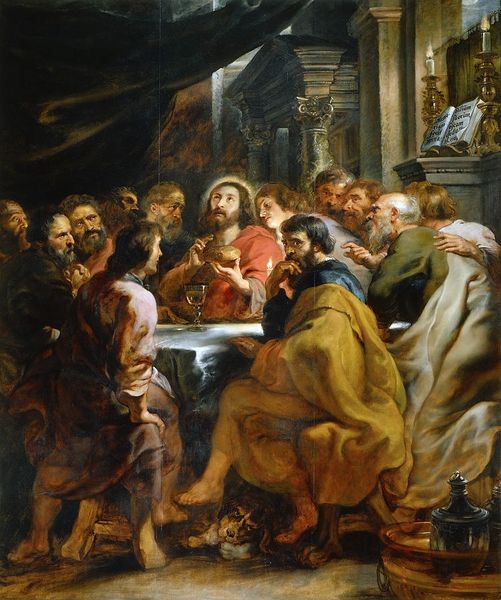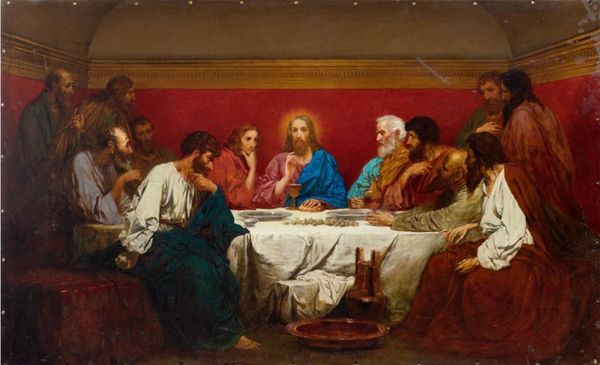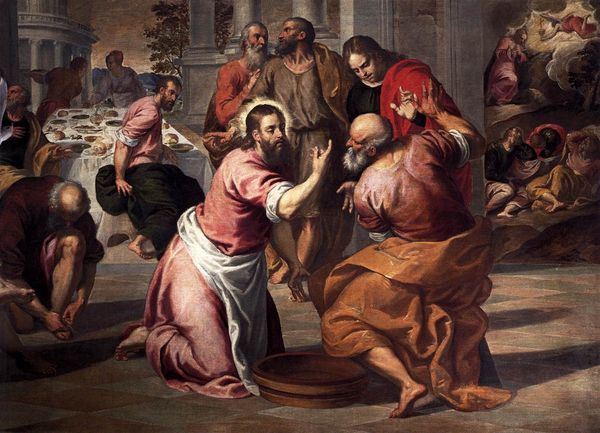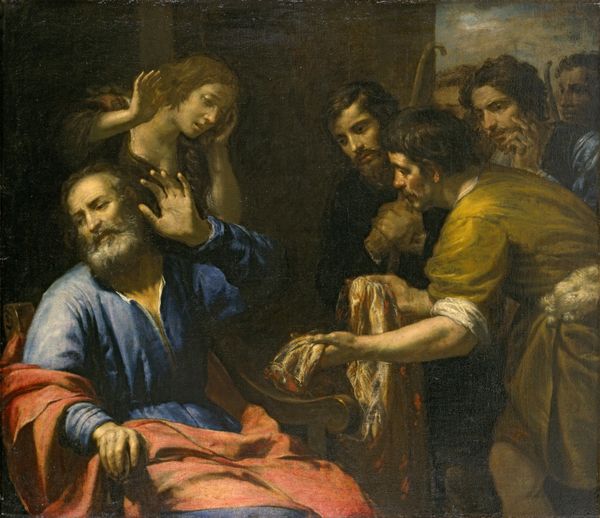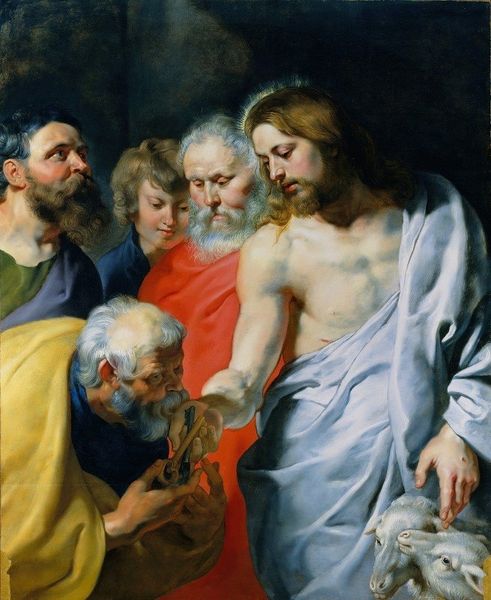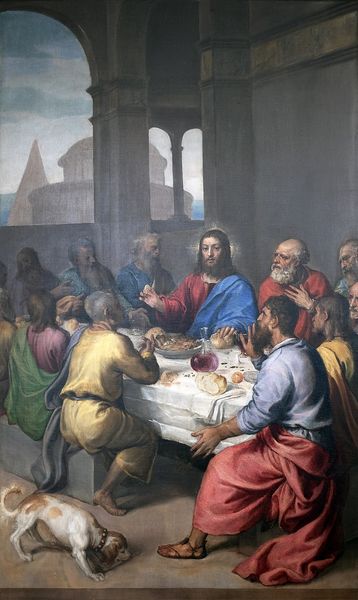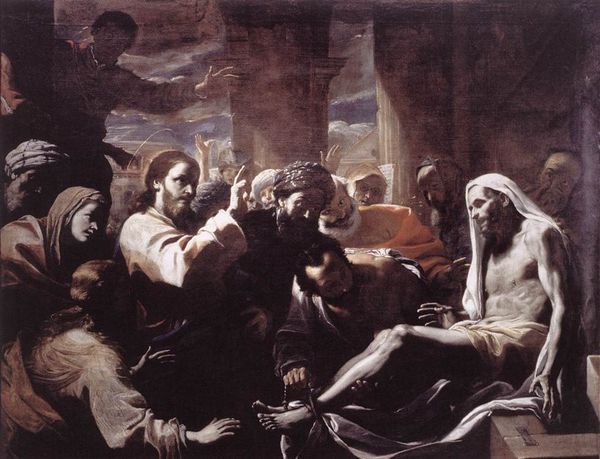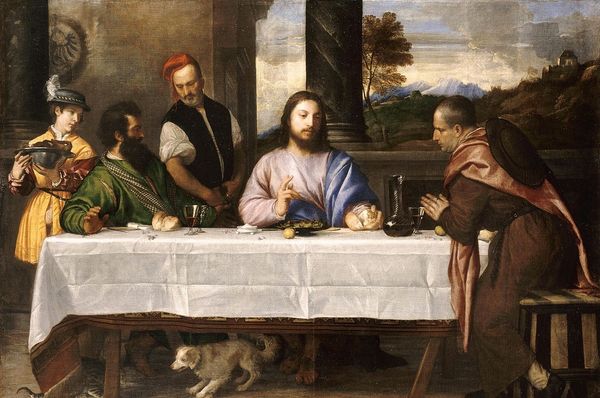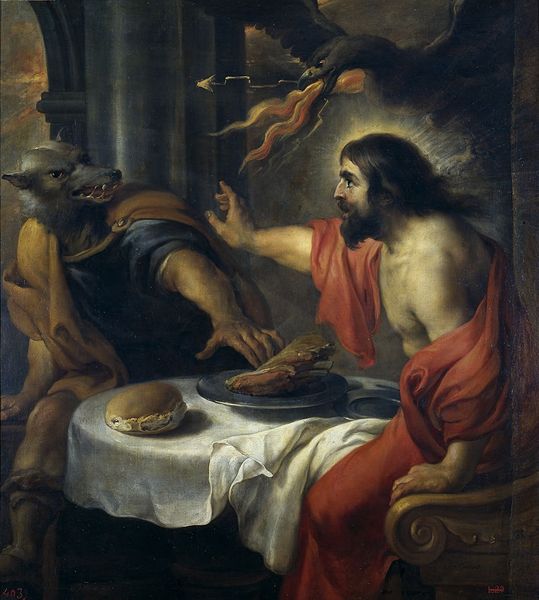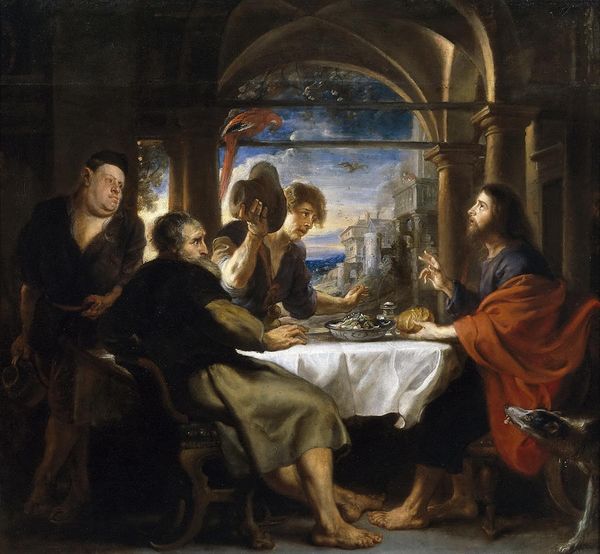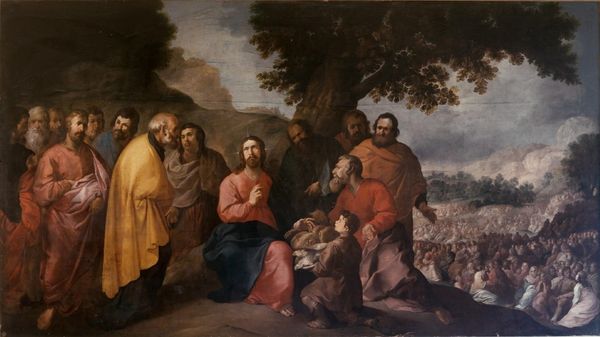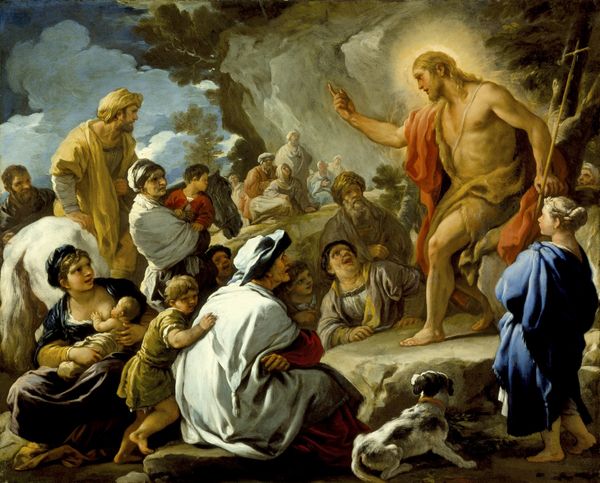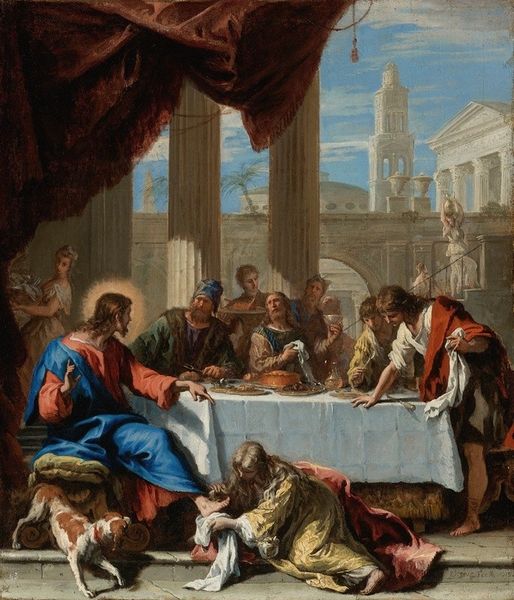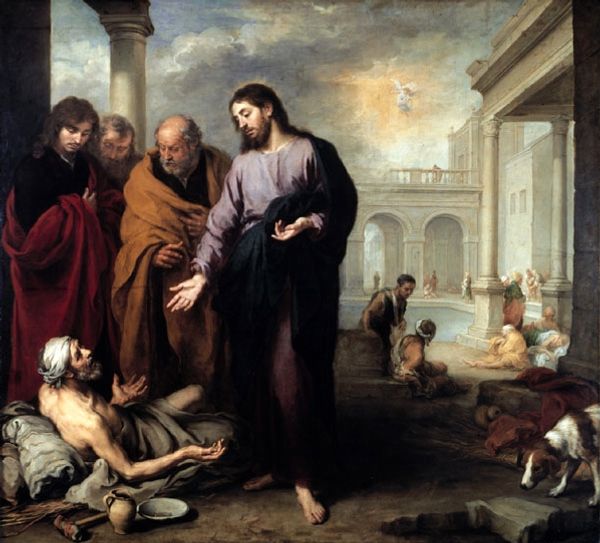
Copyright: Public Domain: Artvee
Curator: Benjamin West’s "The Last Supper," painted in 1786, captures a pivotal moment in Christian history. Editor: It's a dramatic staging, isn't it? The light seems to focus on Christ, but the figure on the right… so pensive, shrouded in shadows almost. You can feel the weight of the situation in the very air of the painting, even though it also comes across slightly mannered. Curator: Indeed. West’s history painting grapples with themes of betrayal and sacrifice. Think about the socio-political implications: representing religious narratives during a time of immense social and political upheaval, using painting to comment on power dynamics and societal expectations. It can also be observed through a feminist lens. Editor: A lot is happening on that table, right? But no abundance... the simplicity almost clashes with the drama etched on the faces. Did West want us to concentrate on something bigger than what's laid out materially? Also, isn’t it strange, though... there’s an almost operatic intensity here, something performative? Like each figure plays a symbolic role, consciously striking a specific pose that tells part of the bigger story? It makes it quite intriguing to observe, but slightly unreal too. Curator: Absolutely. The individual reactions resonate with prevailing concepts of morality, particularly in the context of West's era and its grappling with enlightenment ideals versus religious traditions. One might argue West used those established models both to instruct and, subtly, to challenge. What does it say about societal power dynamics when moral codes are depicted, especially the depiction of such a monumental scene through the brush of oil paint on canvas? Editor: Well, the man was an excellent visual storyteller; to me, each brushstroke screams something akin to human vulnerability wrapped in theatrics! It's like each figure almost competes to show their shock and disappointment, isn’t it? And the artist creates these emotions, or even performances through colours. It makes you think – were those disciples thinking: "Quick, gotta show I am most hurt and baffled!" Ha. Okay, just kidding – well, kind of. Curator: It's a potent reminder that history—and its artistic interpretations—are inherently filtered through lenses of power and interpretation. Editor: And a slightly melodramatic one at that! Anyway, it makes for a memorable scene.
Comments
No comments
Be the first to comment and join the conversation on the ultimate creative platform.
